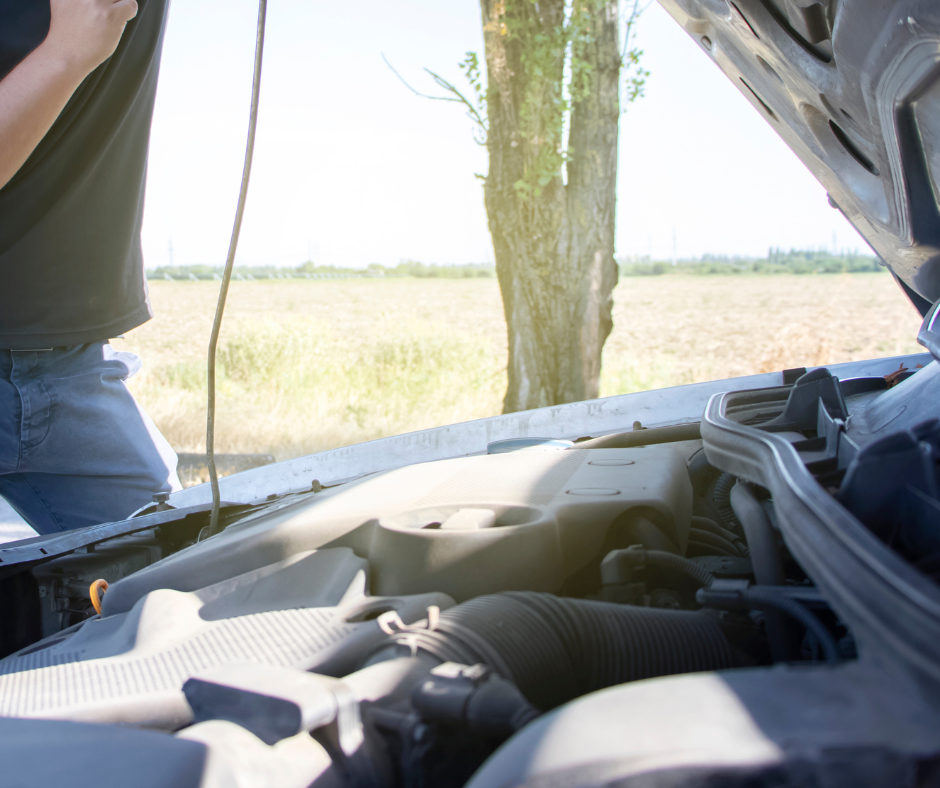It can be frightening when your car is emitting fumes, making strange noises, and/or making erratic movements. In this guide, we’ll go over how to know if there’s a slip in engine performance and how to fix it.

Common Signs of Slips in Engine Performance
There are telltale signs that your engine, particularly your transmission, is slipping.
Check for the following symptoms:
- The check engine light (CEL) is on.
- The mass air flow (MAF) sensor is turned on.
- There are strange burn smells.
- The car has difficulty going in reverse.
- There are grinding or whining noises.
- You have difficulty when shifting gears.
- There is a delayed, weak and loss of acceleration.
- The engine chugs or revs too loud.
Your engine has many components and systems that need to work together. Some help you steer, others are for propulsion, and there are components necessary for stopping. Paying attention to the signs mentioned earlier can help you prevent engine failure. In addition, there are several components that a mechanic will check to determine failing parts.
Check Engine Light
One of the first things you will notice when there’s a serious problem with your car is that the check engine light (CEL) will turn on. For example, it will turn on when you experience a transmission slip and sometimes when you hear some knocking sounds.
Here are some of the things your mechanic will check when the CEL turns on:
- Spark Plugs: This is one of the parts to inspect when your vehicle’s idling is rough. Replacing spark plugs is one of your mechanic’s most common repairs. Failed spark plugs can also reduce your car’s acceleration.
- MAF sensor: Sometimes, cleaning your MAF sensor can fix a CEL light problem. You can use a specialized MAF cleaner to optimize the air-to-fuel ratio and boost fuel economy.
- Exhaust Gas Recirculation (EGR) Valve: Your car’s EGR valve sends unused fuel back into the engine, improving fuel economy. When your car starts knocking, it may indicate a clogged EGR. After a fuel system cleanup, your mechanic can use an octane booster fuel treatment to prevent rough idles and stalling.
- Catalytic Converter: The catalytic converter reduces the impact of your car’s exhaust on the environment. A failing converter will cause your car to stall.
Loss of Acceleration
A drop in power will cause a loss of acceleration, which can be due to several factors. It’s also a precursor to a transmission slip and a stalling engine. Some potential causes include a clogged air filter, a dirty oil filter or fluid problems. Your technician will need to clean the fuel injectors, carburetor, throttle and other parts using a special cleaner to improve maximum performance and prevent stalling. In addition, the filters and car fluids may also need changing.
Strange Noises
Knocking, grinding and tapping noises from your car should cause alarm. Knocking sounds at higher revs are also called pinging. It can be due to poor-quality gasoline or a failing spark plug. Tapping sounds can be a sign that there are problems with your car’s pistons.
Grinding sounds, on the other hand, are a telltale sign of metal rubbing against metal, which means your car has lubrication issues, which can cause a transmission slip or loss of acceleration. Never let these noises go unnoticed, and tell your mechanic what maneuver you were doing when you heard the noises. For instance, the problem may be in your car’s transmission if you hear the noises when you shift gears. Likewise, grinding sounds when you hit the brakes could mean failing pads or rotors.
Slipping Transmission
Your vehicle will feel like its response has slowed when you put your foot on the gas pedal. Your engine will be revving between shifts, but instead of going faster, there is a brief moment of a louder engine sound before the car changes gears. This is a potentially dangerous condition, and your car needs to be checked by a mechanic immediately. The potential causes of a slipping transmission include:
- Torque converter problems
- Worn out gears
- Low transmission fluid
- Clutch problems
- Solenoid problems
Engine Stalling
Some engine stalls can happen suddenly without warning, while in other cases, they start with poor engine performance that car owners choose to ignore.

An older vehicle can be more prone to engine stalling. Older electronics can start to fail, thus making the engine stall and have reduced power output. Another potential cause is fuel and fuel injector problems, preventing sufficient fuel and air from getting into your car’s engine. Your mechanic will also check the ECU (Electronic Control Unit), looking for an error code that can give you a clue as to the possible cause of the problem.
Drop in Gas Mileage
Another indicator of poor engine performance is a drop in gas mileage. Of course, your car’s mileage will be affected by several factors like using the AC when you drive, having more passengers and poor driving conditions. However, when the gas mileage has dropped during normal drives, it can indicate a problem with your engine.
This is one of those car problems that people leave unchecked. As a result, the fuel efficiency of your vehicle goes down, and you’ll find that you refuel more often than before. When this happens, have your mechanic check your vehicle for potential engine problems.
Boosting Your Car’s Engine Performance
It’s not the end of the world for your car when you notice any of the problems mentioned above. However, we recommend you have your vehicle checked by a reliable mechanic as soon as possible, to prevent further damage.
Wondering where you can find and buy the Berryman Products highlighted in this guide?
Browse our list of popular distributors and Berryman retailers now.
